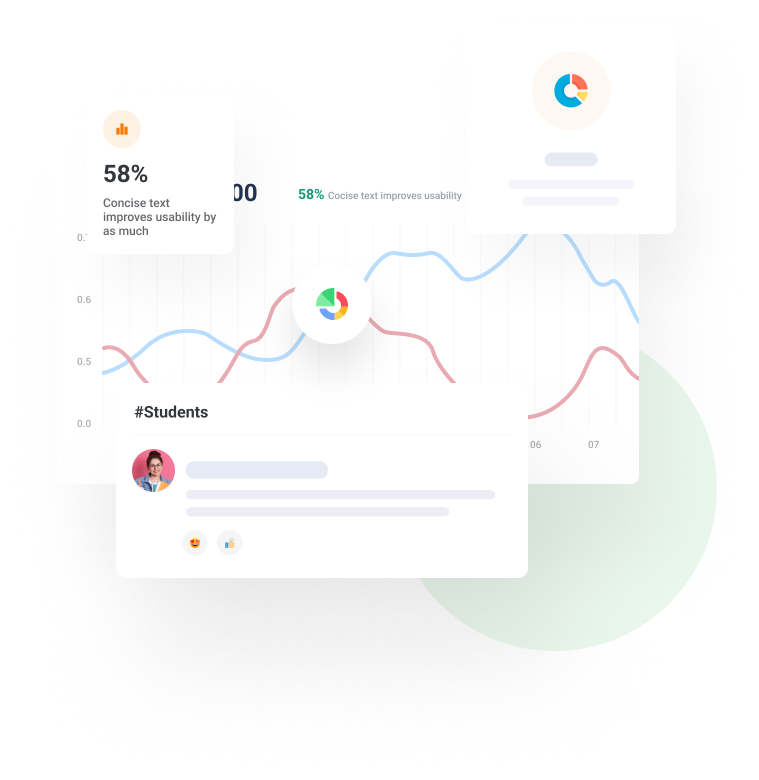Teach artificial intelligence with Data Science Foundations
Artificial intelligence (AI) has been at the forefront of technological innovation, especially since the launch of ChatGPT in late 2022. As educators, it is imperative to equip our students with the knowledge and skills to use AI tools effectively. This includes understanding the fundamental principles of AI and the ethical considerations surrounding its use.
Introducing AI in Data Science Foundations zyBook
To address these educational needs, we are excited to announce the addition of a new chapter on Artificial Intelligence in our Data Science Foundations zyBook. This chapter will be available in all zyBooks starting September 2024. The “Artificial Intelligence” chapter is designed to introduce students to the basic principles of AI and provide guidelines for using AI responsibly.

Core Principles and Ethical Guidelines
The new chapter covers essential AI concepts, including machine learning, computer vision, and natural language processing. These topics are not only crucial for understanding AI but also for appreciating its real-world applications. For instance, machine learning algorithms are the backbone of predictive analytics, while computer vision powers technologies like facial recognition and autonomous vehicles. Natural language processing, on the other hand, is key to developing conversational agents and language translation services.
Moreover, the chapter emphasizes the ethical implications of AI. Students will learn about the potential risks and ethical dilemmas associated with AI, such as bias in algorithms, privacy concerns, and the impact of AI on employment. By understanding these issues, students can become more responsible users and developers of AI technologies.
See the new Artificial Intelligence chapter!
Dr. Aimee Schwab-McCoy, Senior Content Development Manager at zyBooks, explains how the Artificial Intelligence chapter is designed to introduce students to the basic principles of AI and provide guidelines for using AI responsibly.
Practical Applications with Python
In our Data Science Foundations with Python zyBook, we have included sample Jupyter notebooks to illustrate practical applications of AI. These notebooks provide hands-on experience with popular Python libraries used in AI, such as TensorFlow, Keras, and OpenCV. For example, students can explore how to use a neural network for image classification or how to implement a natural language processing model for sentiment analysis.
These practical examples are designed to be accessible to students from any major, regardless of their programming or mathematical background. The goal is to make AI concepts engaging and relevant, thereby fostering a deeper understanding and appreciation of the technology.

Engaging and Relevant Content for All Majors
One of the unique features of the “Artificial Intelligence” chapter is its broad applicability. The conceptual applications of AI are designed to be engaging and relevant to students from various disciplines. Whether a student is majoring in computer science, engineering, business, or the humanities, they will find the content accessible and valuable.
For instance, a business major might be interested in how AI can be used for market analysis and customer segmentation, while an engineering student might focus on the technical aspects of machine learning algorithms. By providing diverse examples and applications, we aim to make AI education inclusive and comprehensive.
Conclusion
The addition of the “Artificial Intelligence” chapter to our Data Science Foundations zyBook represents a significant step forward in AI education. By introducing students to the core principles of AI, practical applications with Python, and the ethical considerations of using AI, we are preparing them to navigate the complexities of this rapidly evolving field.
We invite university professors and academics to explore this new chapter and incorporate it into their curriculum. Together, we can empower the next generation of students to use AI responsibly and effectively, shaping a future where technology serves the greater good.
Stay in the know by visiting Data Science with zyBooks!







